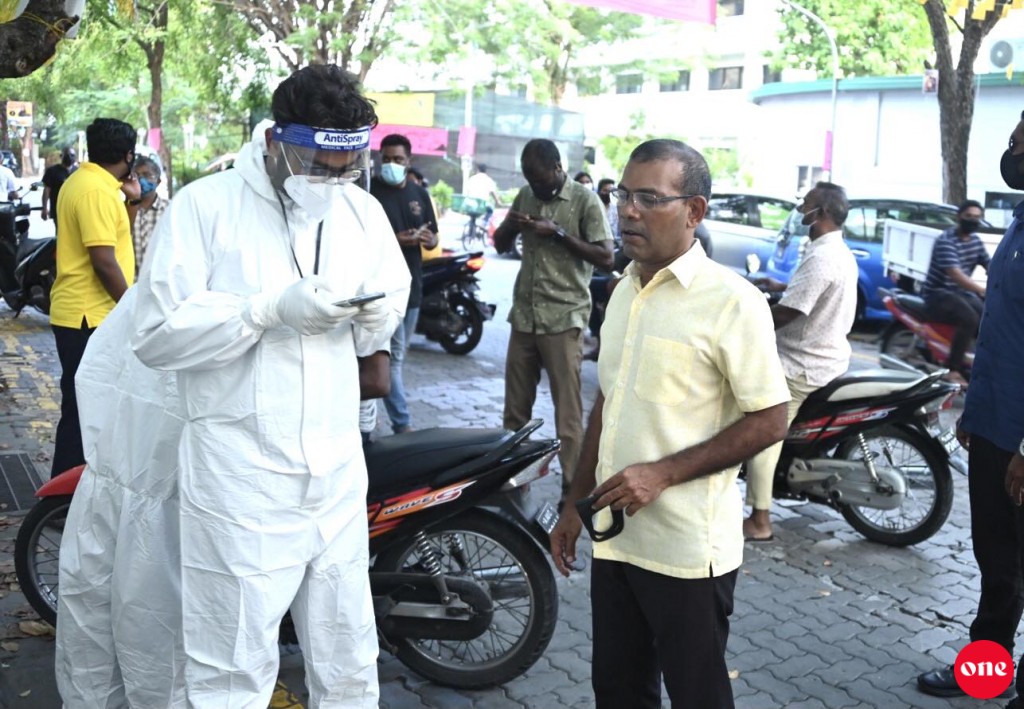Malé, Maldives – Former President and Speaker of Parliament, Mohamed Nasheed has refused to give sample at a random sampling location stating that he does not remember is national identity card number.
After finishing the campaign for Local Council and Women’s Development Committee Elections, Speaker Nasheed talked to the RRT team that was stationed near Dharubaaruge. The team had asked Speaker Nasheed for his ID card number to take his sample, which he refused to give as he apparently did not remember it.
According to local online media ‘One Online’, the RRT team had then told Speaker Nasheed that they could find out the card number and that it would be alright to take his sample. Speaker Nasheed did not give much attention to this and left the area without giving his sample.
Speaker Nasheed’s sample had been collected two times before, when there was no community spread in Malé. This was last year, between March 14 and 19, when all travelers coming from England were tested for Covid-19. Even back then, Speaker Nasheed talked in a way that it was evident he did not want to give his sample.
He questioned the Health Protection Agency (HPA)’s decision and asked about the scientific fact that led them to make this resolution. The second time Speaker Nasheed’s sample was collected when he finished his home quarantine after coming back from abroad.
Numerous Covid-19 random samples are being taken from all over Maldives, especially in Malé where there is a community spread, everyday. RRT teams are active all over Malé and many people refuse to give their samples, HPA said.
HEOC has previously stated that when the health officials attempt to take random sampling to figure out how much the virus has spread in the community, most people tend to refuse to give samples rather than volunteering for it.
Head of the Atoll Preparedness team, Abdullah Mauroof had told at HEOC press conference and informed the people that random sampling is very important to figure out how much the Covid-19 virus has spread in Maldives. He stated that this method is used to identify those who are infected at the earliest so the authorities can place appropriate protective measures in order to avoid a surge in the number of cases in the respective atolls and islands.





